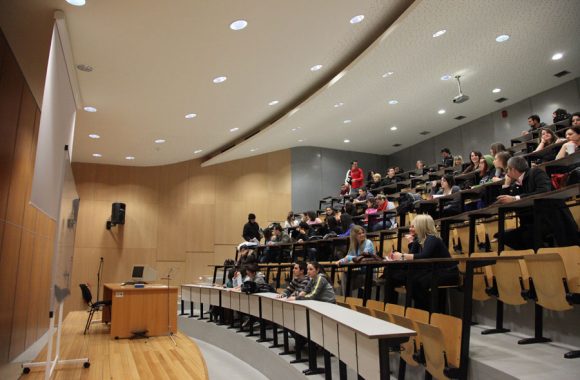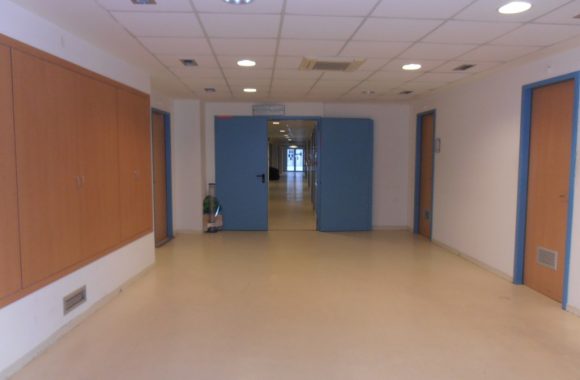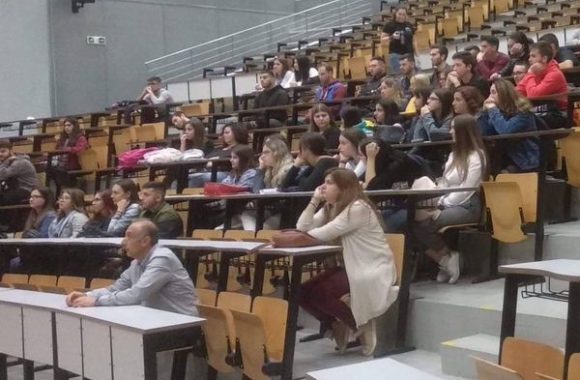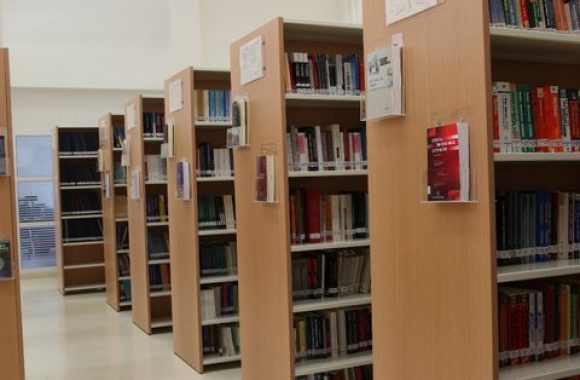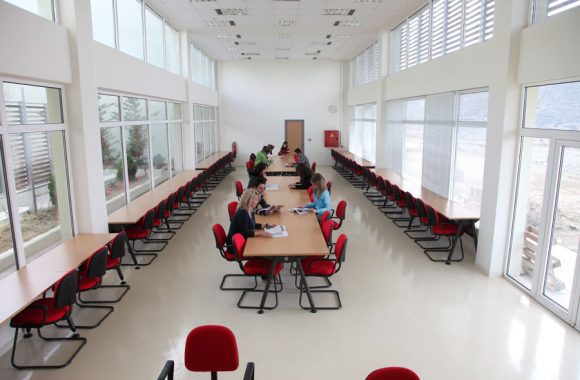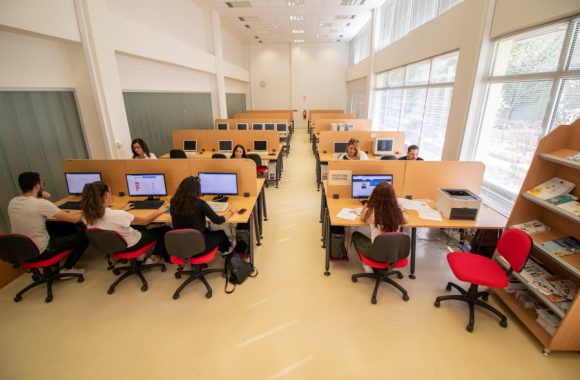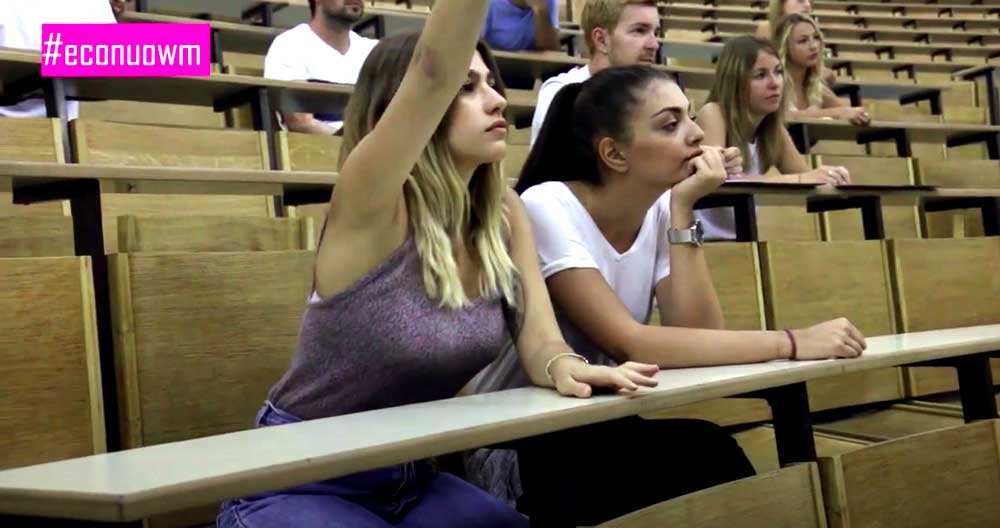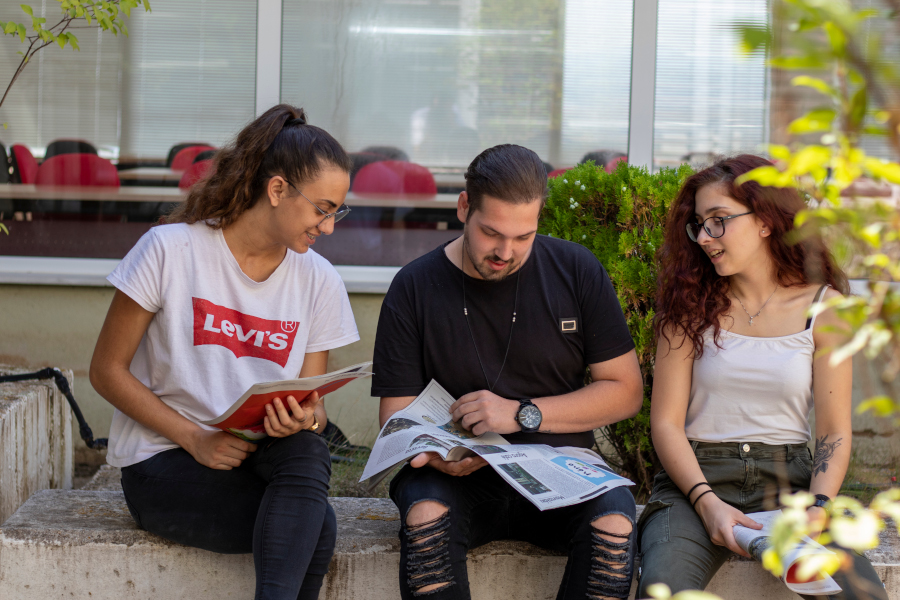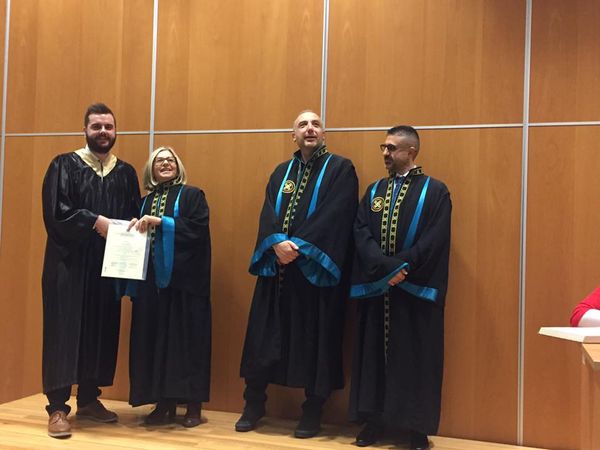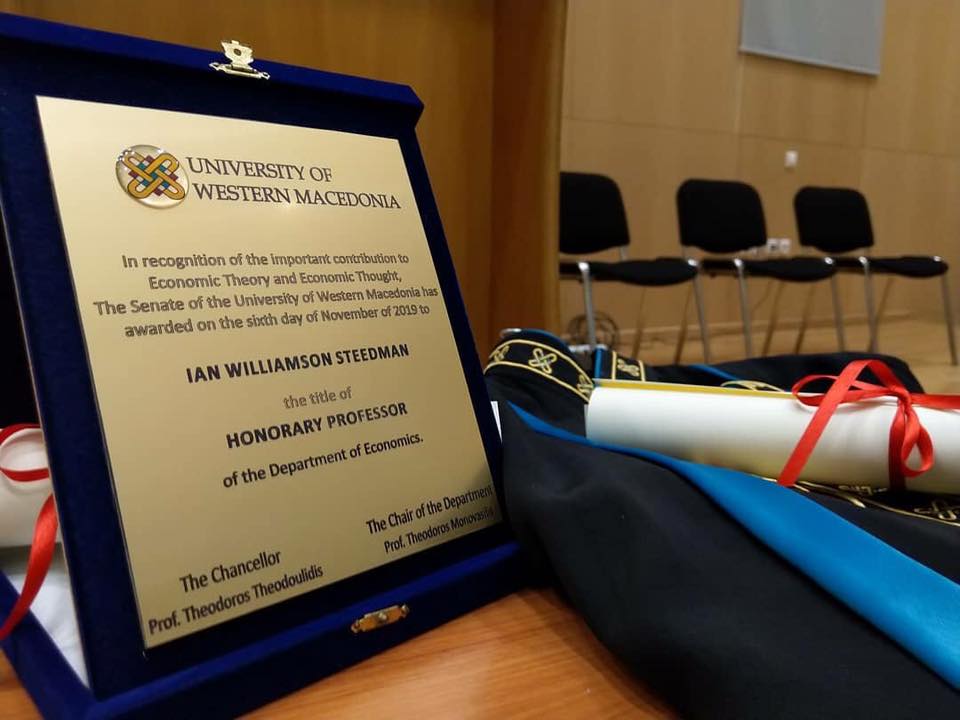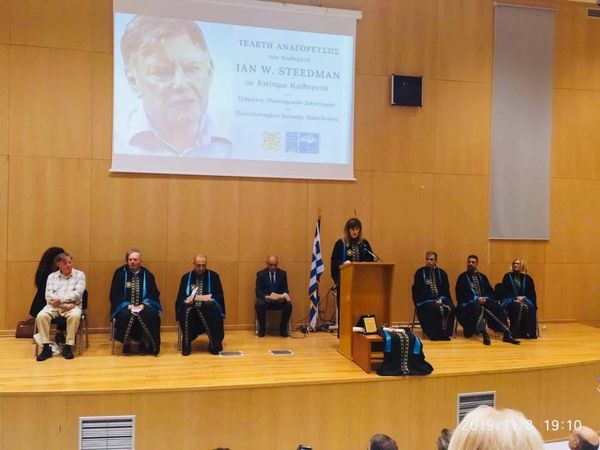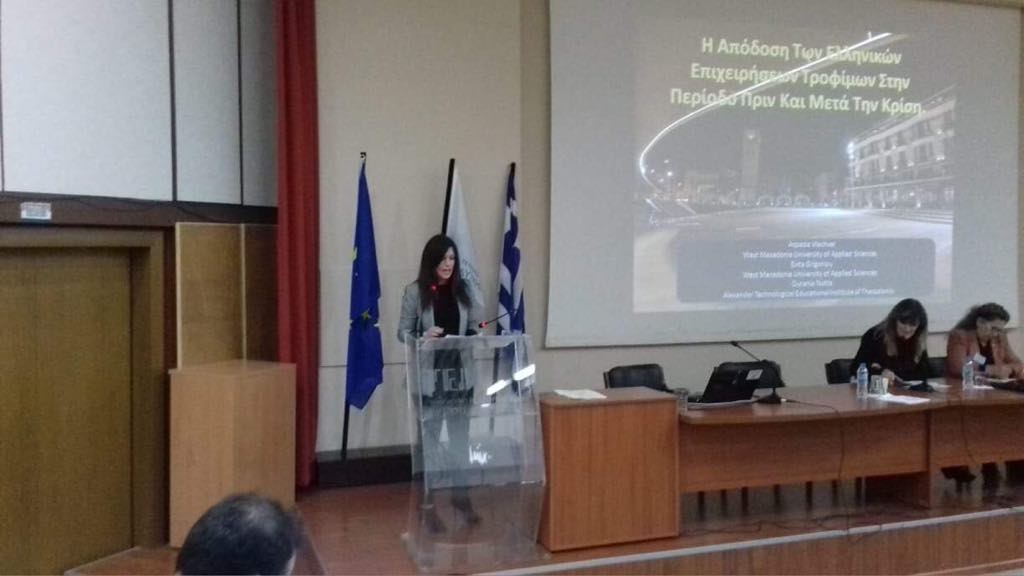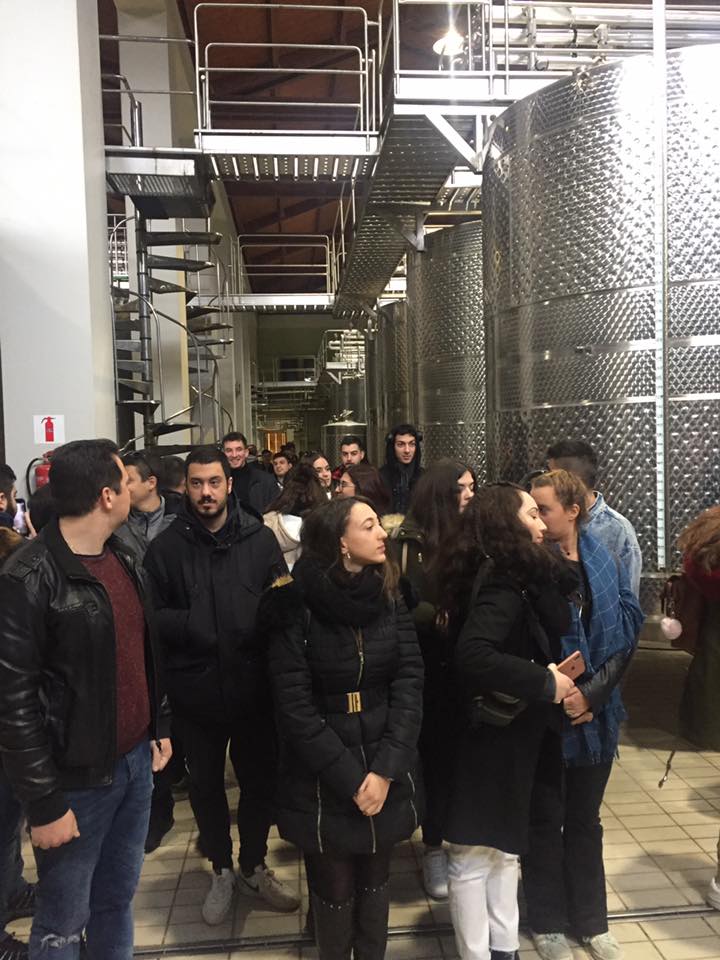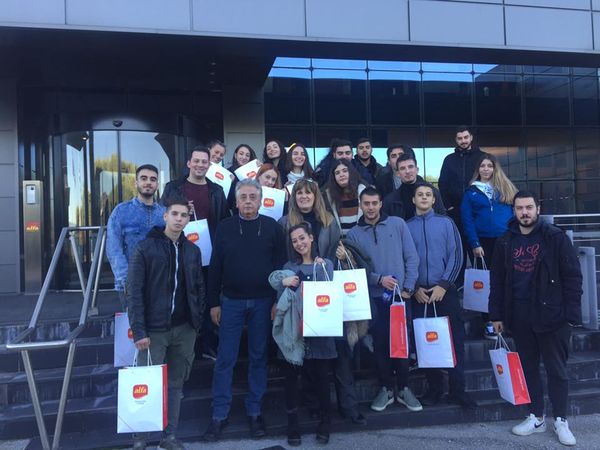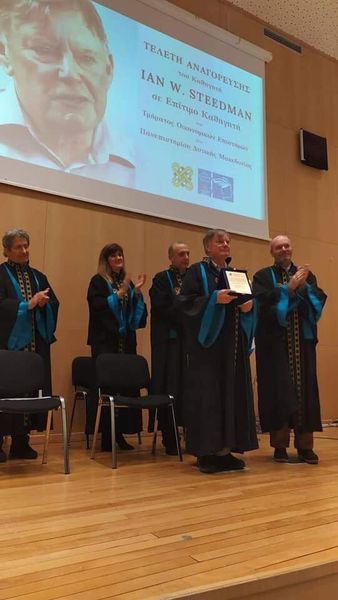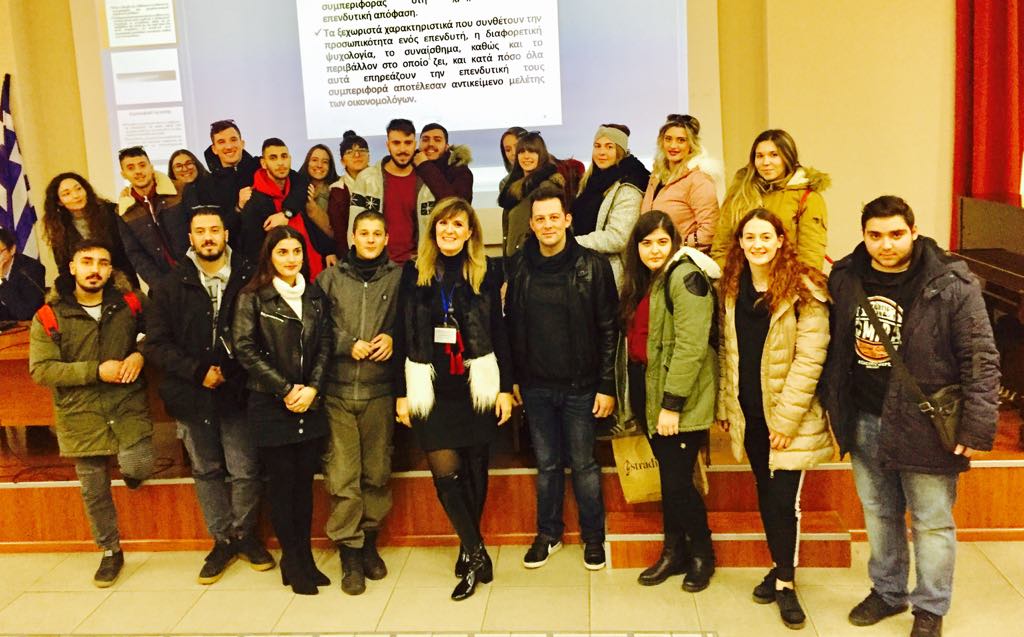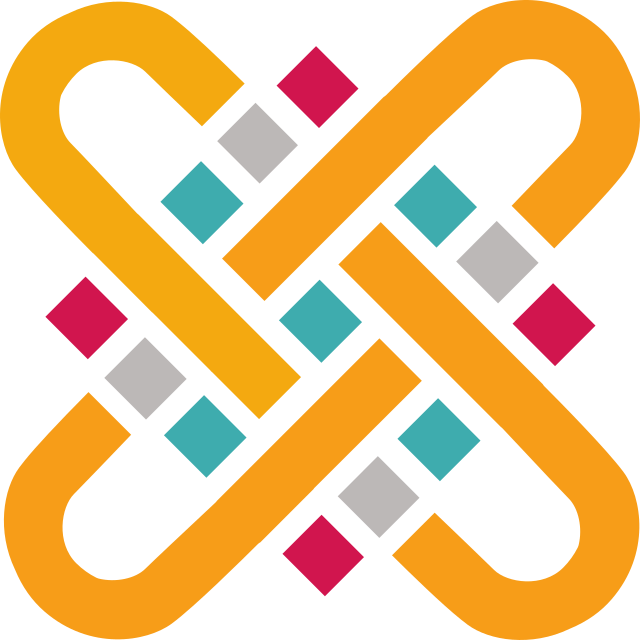
University of Western Macedonia
T (+30) 2467440010
Email: econ(at)uowm.gr
Department of Economics
Fourka area, 52100 Kastoria
Are you a non Greek resident Student ?
Study in Greece :
Economics and Sustainable Development (Bachelor's degree)
The scope of the program is the education, at the undergraduate level, of students that are not residents in Greece, in economics and especially in the areas of economic growth and development, circular economy, environmental economics and the use of environmentally friendly technologies to achieve sustainable economic growth and development.
It is an Interdepartmental Undergraduate Study Program for non Greek residents, in collaboration with the department of Economics, department of Chemical Engineering - Faculty of Engineering and the department of Mathematics - Faculty of Sciences, University of Western Macedonia.
UOWM: Erasmus Charter for Higher Education.
Erasmus+ is the EU Programme in the fields of education, training, youth and sport for the period 2021-2027. The Programme strengthens its efforts to increase the opportunities offered to more participants and to a wider range of organisations, focusing on its qualitative impact and contributing to more inclusive and cohesive, greener and digitally fit societies.
The University of Western Macedonia has been awarded the Erasmus Charter for Higher Education 2021-2027.
Institutional Erasmus Code: G KOZANI02
MOBILITY PROJECT FOR HIGHER EDUCATION STUDENTS AND STAFF
This action supports physical and blended mobility of higher education students in any study fields and cycle (bachelor, master and doctoral levels). Students can either study abroad at a partner higher education institution or carry out a traineeship in an enterprise, a research institute, a laboratory, an organisation or any other relevant workplace abroad. Students can also combine a study period abroad with a traineeship, further enhancing the learning outcomes and development of transversal skills. While long term physical mobility is strongly encouraged, this action recognises the need to offer more flexible physical mobility duration to ensure the programme is accessible to students from all backgrounds, circumstances and study fields.
This action also supports higher education teaching and administrative staff to take part in professional development activities abroad as well as staff from the world of work to teach and train students or staff at higher education institutions. These activities may consist of teaching as well as training periods (such as job shadowing, observation periods, training courses).
The Erasmus Office of the University of Western Macedonia manages the Erasmus+ mobility projects and provides information and support to all the participants.
Please click here to download the Erasmus+ student guide.
City of Kastoria Greece - City of International Trade - City of Economics
INFRASTRUCTURE - FACILITIES
INFRASTRUCTURE - FACILITIES
The infrastructure of the Department is modern with newly built buildings that are fully equipped. Its modern educational facilities include fully equipped laboratories with several software packages in the fields of accounting , logistics, marketing, econometrics, mathematics, interactive multimedia, etc. The classrooms and amphitheaters include all modern teaching tools (projectors, interactive whiteboards, sound installations, etc.), while the Department's library is rich in books and academic journals.
Student's Life
Info
Duration
Time structure of studies
The study in the Department lasts 8 semesters. Each semester includes at least thirteen (13) full weeks of teaching, covering the minimum number of credits required. In the first two years of study, students are taught eighteen courses, which mainly cover basic economic theory and quantitative analysis, as well as business economics. The studies in the first years aim at an in-depth understanding of the cognitive subject, as well as the preparation for the choice of field in the third year.
Holidays
Courses do not take place:
- from Christmas Eve until the day after Epiphany (Christmas holidays)
- from Tyrophagous Thursday until the day after Shrove Monday (Carnival holidays)
- from Holy Monday to St. Thomas Sunday (Easter holiday)
- on the day of the general student elections
- on the day of the rector elections
Also, classes are not held during the following holidays:
- national holiday of 28 October
- Anniversary of the liberation of Kastoria: Thursday, November 11, 2021
- Anniversary of the Polytechnic, November 17
- Feast of the Three Hierarchs, January 30
- national anniversary of 25 March
- May 1st
- of the Holy Spirit
The months of July and August are defined as the period of summer holidays.
Courses
Courses statement
At the beginning of the semester, students fill in the electronic application that contains the courses of the study program, which they wish to attend the specific academic semester.
The number of courses is determined by the Department, which decides on any overdue applications.
Examination can be performed only in a course that has been declared, according to the above, during the specific semester.
Students who have not made an electronic application within the dates announced by the secretariat, have no right to be examined in any course for the specific semester.
Teaching organization
Timetable
The teaching of the courses of the undergraduate study program is done according to the timetable prepared by the Secretariat of the Department, under the responsibility of its President, so that the flow of the educational process is as continuous as possible.
The timetable includes the distribution of the teaching hours of the courses within five working days of the week, the teachers and the classrooms and is announced by the Secretariat in time.
Monitoring
Attending classes
Attending courses, tutorials, exercises, workshops, etc. on behalf of the students according to the timetable and the Study Guide of the Department. Students can use the laboratory facilities, libraries, reading rooms and other equipment of the Department, according to the decisions of the Department.
Attendance at seminars, workshops and tutoring courses may be mandatory for students, by decision of the instructor or the General Assembly of the Department.
In the courses the teacher can identify the special needs of the students (type of research work, presence during the course, presentations).
Special care is paid to facilitate the attendance of courses by students with special needs and learning difficulties. In order to provide any special facilities, it is necessary to submit in time to the Secretariat of the Department of diagnostic report of learning difficulties that will be issued by the Center for Differential Diagnosis, Diagnosis and Support of Special Educational Needs or a recognized public school. At the written request of the interested party to the Secretariat of the Department, at the beginning of each semester, the teaching staff involved in the courses stated by the student is informed about the learning difficulties he faces and the tried and tested way to facilitate the educational process.
Examination
Exams
Performance evaluation is based on the final exam, written or oral, after the end of the semester. The way of examination, with the exception of that of students with learning difficulties and grading which must be the same for all students. Examination beyond the predetermined date, or in a way other than the predetermined one, is allowed only at the request of the student due to serious health problems.
Special care is taken for the examination of students with learning difficulties. Following a written request of the interested party, the Department’s General Assembly can determine the way of examination, if it is not clearly defined by the presented special diagnostic report from which is certified and the learning difficulty faced by the student. If the special diagnostic report shows the student's inability to take part in written examinations, he is exempt from any written examinations and is given the opportunity for an oral examination. In this case the examination is done in the same subjects and material as the students who are examined in writing. To facilitate students with learning disabilities, they should be given ample time before the oral exam to study the exam questions, understand them, and take notes, if desired. These notes can be used during the oral examination. In no case are the rough notes included in the final grade. For the participation of a student in a special examination, a written application of the interested party is required for each course.
There are three examination periods:
- January, for winter semester courses,
- June, for the courses of the spring semester and
- September (repetitive), for the courses of the two semesters.
The duration of each examination period is a maximum of four weeks.
The exam schedule for each semester is announced at least two weeks before the exam period. If, for any reason, it is decided to extend the teaching of the semester, it is transferred in parallel. The program for the September period is announced in June.
- Attendance at the final exam of each course after the end of the semester presupposes the active participation in the educational activities that have been declared mandatory by the teacher and there is compatibility with the current legislation.
- In addition to the grade resulting from the final exams provided, the grade point average of each student resulting from additional midterm exams determined by the instructor is optionally established. These tests may be one or more of the following:
- Written and / or oral midterm exams
- Written exercises in the classroom
- Laboratory exercises
- Homework
- Active participation in working groups.
- The final grade, in addition to the grade of the final exam, will take into account the grade of the other assessment methods with a grade of gravity determined by the Professor.
- In the first week of each semester the Professor posts on the website of the Department or on the e-Class platform the compulsory and optional educational activities and the course evaluation process as well as any other information related to the course.
The Department is responsible for the smooth conduct and supervision of the examinations. During the examination, the instructor of the course is present in the room and as supervisors are used scientific associates, doctoral candidates, postgraduate students, as well as administrative staff of the Department. The conduct of the supervisors must not be offensive to the dignity of the examinees. For the written exams, each Professor sets the minimum and maximum duration. Each day of the exam periods is divided into six two hours starting at 9:00, 11:00, 13:00, 15:00, 17:00 and 19:00 and the beginning of the examination of each course must coincide with one of these hours.
Performance
Grading
Course performance is assessed by grades given during the exam process. Each course is graded independently in whole units and one decimal place. The grade point average in the student's overall performance is set from zero to ten. Specifically, the transferable points are: "Excellent" from 8.5 to 10, "Very good" from 6.5 to 8.49 and "Good" from 5 to 6.49.
The results of the exams are registered electronically for each student by the Professor within a maximum of four weeks from the exam of the course, and in any case in a reasonable time so as not to hinder the process of registration of courses by students. Students are informed of the degree of the examination by their personal institutional account.
Course recognition
transfers - qualifiers
Those who transfer, or are enrolled in any semester, can recognize courses with the same cognitive content, in which they have achieved a passable grade and this is proven by their detailed grade. The recognition is decided by the General Assembly of the Department, after the suggestion of the competent Professor, who must take into account the suggestion, the ECTS of the course, the teaching material and any other information he deems important for the decision of recognition or not. course. The grade that students receive, in case of recognition of the course, is the same transferable grade as the one indicated in the detailed grade.
For those who have attended international training programs, the program time, credits and the corresponding grade are recognized as actual study time, which is converted into the above-mentioned grading scale.
Degree
Degree - degree
34 courses are required to obtain a degree, a total of 240 ECTS (European Credit Transfer System). ECTS are credits that are transferred between departments and correspond to the workload of each course. The degree awarded is the 6th level qualifications of the National Qualifications Framework, the European Qualifications Framework for Lifelong Learning and the Qualifications Framework of the European Higher Education Area.
The degree is determined, as defined by the current provisions for each Department, provided that the student completes the minimum number of credits required to obtain the degree.
Graduates
Graduation certification
Students who have successfully completed their studies, are sworn in before the Rector, or his deputy, and / or the Dean and the President of the Department.
The graduation ceremony in is not a component of the successful completion of the studies, but a necessary condition for the award of the written degree. Prior to the graduation ceremony, graduates may be provided with a relevant certificate for the successful completion of their studies. The certificate of completion of studies is signed by the Secretary of the Department and is stamped with the seal of the Department.
For the graduation ceremony the presence of the graduates is necessary, on dates set by the Dean in consultation with the Presidents of the Departments.
The statements of the books for all the courses are made through the Electronic Service of Integrated Book Management "EYDOXOS", of the Ministry of Education & Religions, Culture & Sports. The access of the students to the service "EYDOXOS" (http://www.eudoxus.gr) for the Academic Year 2020-2021 will be done through their identification in the federal Infrastructure of Identification and Authorization (AAI) of GRNET, using the name of the Department and the Registration Number of each student.
For the issuance of the special ticket (pass), the students submit their application electronically on the website http://paso.minedu.gon.gr. Then, and after the application is approved by the Secretariat, students can receive the special ticket (pass) from a specific delivery point, which they will have chosen when submitting their application.
As part of the support of students who have financial difficulties to cope with their studies, Free Food is provided to the eligible students in the student restaurant of the University of Western Macedonia in Kastoria, which is located near the faculties. The conditions for free feeding as well as the application dates are announced in a timely manner by the department secretariat. Students not eligible for free meals pay a low daily fee for a full menu (breakfast, lunch and dinner).
All students (undergraduate, postgraduate, expatriate and foreign) are entitled to health, medical and nursing care for a period equal to the years of study provided as a minimum duration of undergraduate studies increased by two years.
Additional information about health care is provided in the Health booklet. To provide a Health Care booklet, students should contact their Department Secretariat
The Student Support Unit for Vulnerable Groups (MYFEO) aims at equal access to the academic studies of students with different abilities, requirements, and needs (EKO).
MYFEO's mission is to achieve in practice the equal access to the academic studies of students with different abilities, requirements, and needs through the provision of adaptations to the environment, IT Support Services, Access Services, Consulting Services and Financial Aid.
For more information you can visit the link below
Every year a large number of scholarships are announced for all cognitive subjects, at undergraduate and postgraduate level. The announcements state the terms and conditions of the scholarships. Interested students can contact the Student Welfare Offices and the Liaison Office, in order to be informed about the criteria for granting scholarships and the relevant application process.



